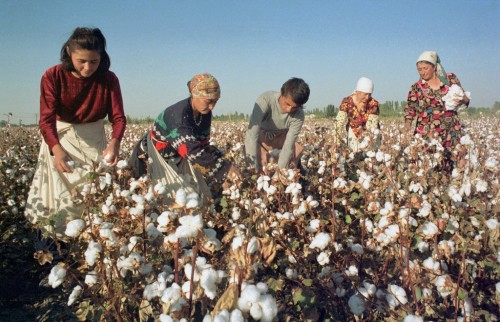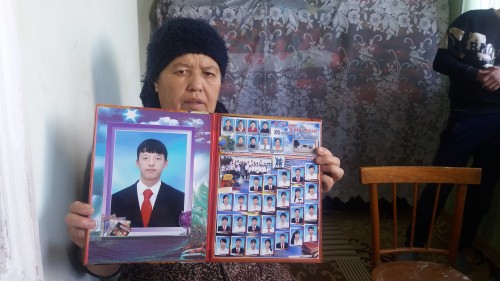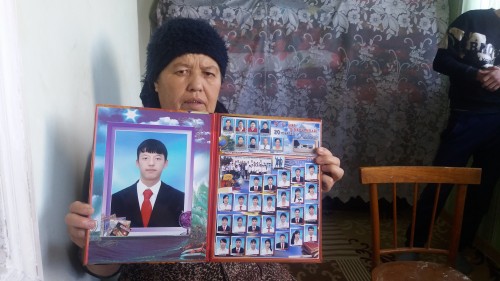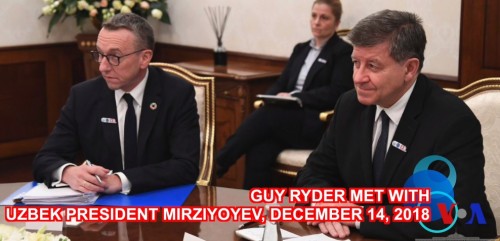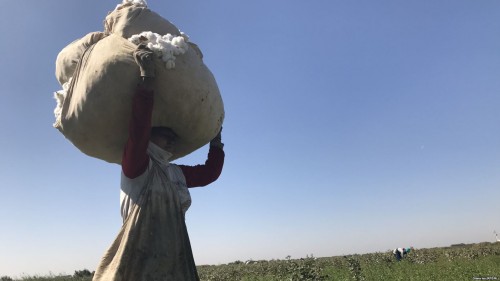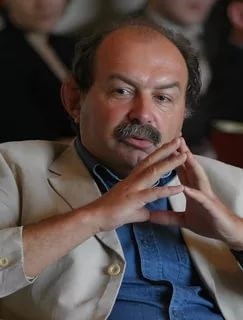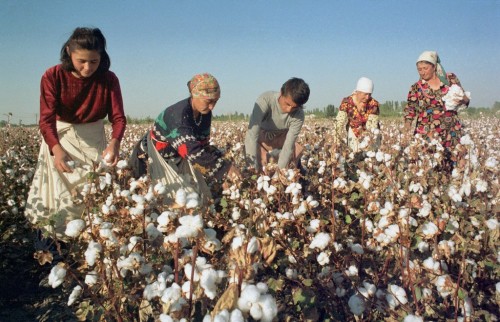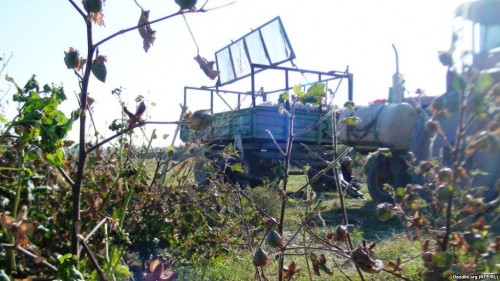Countries
Solidarity campaigns
13 August 2024
Georgia: Support striking workers at Evolution Gaming
5 June 2023
Georgia: Justice for Wolt couriers
10 May 2023
Belarus: Trade union activity is not extremism!
2 November 2019
Kazakhstan: Trade unionist Erlan Baltabay imprisoned - again!
19 November 2018
Kazakhstan: Stop repression and physical attacks on leaders of independent unions; hands off Larisa Kharkova, Erlan Baltabai and Dmitriy Senyavskiy
18 April 2018
MALOKHAT STILL NEEDS YOUR HELP
News
21 January, 2019 / uzbekistan
Suspend bank loans tainted by Uzbek forced labor
The World Bank is an institution that provides loans for developing countries. Right now it is providing almost $500 million to Uzbek agriculture projects. Yet Uzbekistan’s cotton industry has historically relied upon state-sanctioned forced labor.
09 January, 2019 / uzbekistan
Uzbek-Spanish Company Implicated in Forced Labour with Tragic Consequences
Every year, employees from Maxam-Chirchiq and Ammofos-Maxam are forcibly sent to pick cotton for up to two months. This often involves living and working in inappropriate conditions, away from their families, with inadequate food, water and sanitary facilities.
18 December, 2018 / uzbekistan
Spanish-Owned Chemical Company Implicated in Forced Labour with Tragic Consequences
24-year-old Sohibjon Mutalibov, an employee of Ammofos-Maxam, the largest producer of mineral fertilizers in Uzbekistan, was forcibly sent to pick cotton in the Jizzakh region on September 26, 2018. Two days later, he died following a fight with a local resident who fractured his skull. Sohibjon lay in a coma for seven days and died without regaining consciousness in hospital in the Dustlik district of the Jizzakh region. Sohibjon was one of the hundreds of thousands of employees of enterprises that were forcibly sent to pick cotton in the fall of 2018 under the threat of dismissal.
16 December, 2018 / uzbekistan
Exclusive: ILO Director-General in Uzbekistan
International Labor Organization's Director-General Guy Ryder recently visited Uzbekistan, meeting President Shavkat Mirziyoyev and other high level officials to discuss how this country is reforming to end forced labor, specifically in its cotton fields. VOA talked to Ryder in Tashkent.
14 December, 2018 / uzbekistan
Despite Commitment and Efforts, Systematic Forced Labor in Uzbekistan’s Cotton Fields was Present During the 2018 Harvest
Uzbekistan’s 2018 cotton harvest, which concluded in all regions of the country the first week of December, showcased the enormous challenges in uprooting the country’s deeply entrenched forced labor system. Driven by a commitment to reform at the highest levels of the government, there is a significant transition underway, which is reflected in some encouraging signs of progress. But despite serious efforts by the central government to curtail forced labor for some citizens, key root causes remained in place, driving officials at both the local and national level to force citizens into the fields again.
13 December, 2018 / uzbekistan
CHALLENGING FEUDALISM IN LABOUR RELATIONS IN COTTON SECTOR OF UZBEKISTAN: STRATEGY AND TACTICS
INTERVIEW WITH ANDRE MROST.Andre Mrost has a PhD in physical geography and studied environmental impact of large irrigation projects, including Uzbekistan within the UNEP - Institute of Deserts study of the Aral Sea drying. He is also an expert in the international labour relations with 18 year experience of working for the global trade unions. Later he was a researcher on corporate social responsibility, CSR, and is a certified auditor on SA 8000 social standard. Andre took part in training child and forced labour monitors of the Uzbek German Forum, was detained by the Uzbek security in Tashkent in times of the President Karimov and expelled from Uzbekistan
12 December, 2018 / uzbekistan
Seven Children Wrongly Vaccinated While Nurse is Sent to Pick Cotton
Radio Ozodlik has reported that seven children from 3 to 6 years old were incorrectly vaccinated while the nurse responsible for conducting preventive vaccinations was sent to pick cotton.
11 December, 2018 / uzbekistan
Is Uzbekistan Free from Forced Cotton-Picking?
As monitored by the International Labour Organisation (ILO), almost all citizens of Uzbekistan involved in cotton-picking this year have worked on the fields as volunteers, while the country has made titanic efforts to eradicate forced labour. However, the findings of independent human rights activists contravene the official data.
06 December, 2018 / kyrgyzstan
Concluding Statement of the Laboratory on Labour Rights in Central Asia within the framework of the XII International Festival of Human Rights Documentary Films.
The Laboratory on Labour Rights, organised by the International Labour Rights Monitoring Mission in Central Asia as part of the Bir Duino International Festival of Human Rights Documentary Films, with participation of representatives of independent trade union and human rights organisations from Belarus, Germany, Kazakhstan, Kyrgyzstan, Moldova, Norway, Russia, Tajikistan, Turkmenistan, Ukraine, Uzbekistan and the USA
05 December, 2018 / uzbekistan

